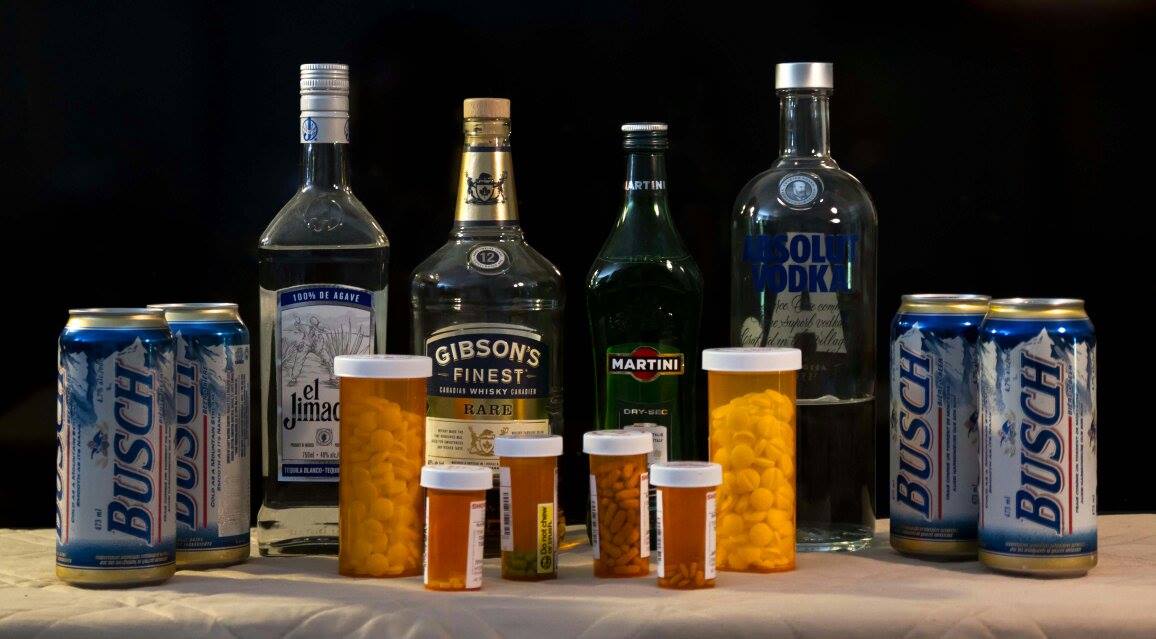Effexor and Alcohol Interaction

Effexor and Alcohol
Effexor generic name venlafaxine belongs to a family of drugs known as selective serotonin and norepinephrine reuptake inhibitors and serve as antidepressants which affect chemicals in the brain that may become unbalanced and cause depression.
The drug is primarily used to treat major depressive disorder, anxiety and panic disorder and may be used for other purposes.
Do not drink alcohol while using Effexor as the side effects may be greatly increased.
At this time the medical community defines moderate consumption of alcohol as no more than two drinks per day and no more than 14 drinks per week. Anything more than that is considered an unhealthy dependency on alcohol that may have adverse social, family and health consequences.
If a person drinks only once or twice a week but drinks on the same days each week and more than two drinks this is considered as an alcohol dependency.
If a person binge drinks at any time during the week this is also considered as alcoholism.
Some consider alcoholism as a disease while others consider it an addiction which is the result of personal choice and character fault. This school of thought blames the alcoholism on life style choices.
Personally I consider alcoholism a genetic tendency as I have seen families of alcoholics even when they live far apart. These unfortunate people are probably dependent on alcohol from the first drink.
When alcohol interacts with prescription over the counter drugs it usually results in negative health effects most especially liver damage as the main organ affected.
Do not use this drug if you are allergic to any monoamine oxidase inhibitor or if you have used an MAOI wait 14 days before starting use.
Before taking Effexor advise your physician if you have bipolar disorder, manic depression, cirrhosis, other liver disease, kidney disease, high blood pressure, glaucoma, seizures or epilepsy, bleeding or blood clotting disorder or high cholesterol.
Effexor should not be used if you are pregnantas birth defects in the baby could occur.
Side Effects
Less serious side effects are drowsiness, dizziness, feeling nervous, strange dreams, increased sweating, blurred vision, dry mouth, changes in appetite or weight, mild nausea, constipation, decreased sex drive, impotence or difficulty achieving an orgasm. If these occur call your physician for advice.
Serious side effects are seizure, convulsions, very stiff muscles, high fever, sweating, confusion, fast or uneven heartbeats, tremors, feeling faint, agitation, hallucinations, fever, fast heart rate, overactive reflexes, nausea, vomiting, diarrhea, loss of coordination, headache, trouble concentrating, memory problems, weakness, feeling unsteady, confusion, hallucinations, fainting, shallow breathing or breathing that stops, cough, chest tightness, trouble breathing or easy bruising. If these occur get emergency medical help.
This site serves as an information source only and does not dispense medical advice or any other kind of advice. If you are seeking medical advice you are advised to consult your own physician.
Effexor and alcohol Effexor and alcohol
Return from Effexor and Alcohol to home page.
Hard copy and E book for sale. What's Killing You and What You Can Do About It. Click here.
Hard copy and E book for sale. Introduction to Building Mechanical Systems. Click here.